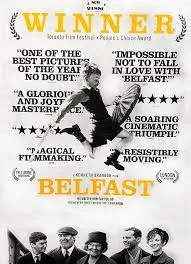Director: Yata Satyanarayana
In her last major speech before her disposition, Sheikh Hasina accused those who opposed her rule in Bangladesh of being Razakars. The opposition took offence to this term and soon widespread mob throughout the land. Of course, it is not that that single incident brought down an elected government but a culmination of joblessness and unjust reservations for a select population group. In the Bengali psyche, Razakar is a pejorative term meaning traitor or Judas. It was first used during the 1971 Pakistan Civil War. The paramilitary group who were against the then-East Pakistani leader, Majibur Rehman, were pro-West Pakistan. After establishing independence in Bangladesh, Razakars were disbanded, and many ran off to Pakistan.
Around the time of Indian independence, turmoil brewed in the princely state of Hyderabad, which had been a province deputed by the Mughals from 1794. The rule of Nizam commenced since. That vast state of Hyderabad covered Andhra Pradesh, Telangana and parts of Maharashtra and Tamil Nadu. In total, seven Nizams ruled Hyderabad. Barring the rule of the sixth Nizam, Nizam Mahbub Ali Khan, their rule saw much discontent, oppression and restricted liberty. Even before the 1919 Jallianwala Bagh Massacre, in 1857, 1000 members of rebelling tribal members were hung unceremoniously on a banyan tree. In the present state of Telangana, there was a kingdom named Gond. Some British soldiers trespassed on their land and destroyed public property. The Gond members killed them. The British retaliated by hanging the leader Ramji Gond and others on a tree immortalised as the 'thousand skull tree'.
Other hardships the people endured were high taxes, forced conversion and the inability to use their preferred languages. Before this, Telegu, Marathi, Tamil and Kannada were freely spoken. Then came the use of Persian and Urdu.
When the British decided to pack up and leave, the 562 Indian states could join Pakistan or India or stay alone. Hyderabad initially wanted to be part of Pakistan. Imagine the logistics of having a landlocked independent state with the ideology of the enemy, i.e. Pakistan. The last Nizam gave Jinnah an audience, but his demeanour cheesed off the Nizam. Upon taking his seat, Jinnah sat with one leg crossed against the other and smoked a cigar. That, remarked the offended Nizam, was the end of their discussion. The Nizam vowed to stand alone, promising to develop Hyderabad to Turkistan, the apt replacement for the once splendid Ottoman Empire.
This much is known. India wanted Hyderabad to be part of India after two large chunks of land were given to Pakistan, but states made a deal with India-Pakistan. The Standstill Agreement in November 1947 gave the princely states a year to decide which side to opt for.
What happened within Hyderabad State is debatable. Though many of the gory stories that come out are denied by many journalists and historians, many swear of the atrocities that bordered on genocide that they had to endure. At the end of the day, it is a Muslim-Hindu issue. The deniers insist it was humanly impossible for a ragtag squad of Razakars to create so much damage. They blame the communists who were also trying to put footage into the state. It was a chaotic time. Peasants were rebelling, and landowners wanted to hold onto their lands.
Hyderabad had a population of 15% Muslims, who ruled the majority Hindus. The ruling class also included Pathans, Arabs, and other foreign administrators. The frugal Nizam was, at that time, the wealthiest man on Earth, with diamonds and other priceless minerals under his thumb. When the Nizam wanted to remain independent, his yeoman, Qasim Razvi, the leader of a quasi-political party, clandestinely recruited radical volunteers to uphold Islam and prevent the fall to the control of the Hindu Rashtra. Razakar is an Arabic word meaning volunteer.
Meanwhile, with his vast coffers, the Nizam procured surrender German weapons from the victors of WW2. Rifles and automatic guns were flown in via Pakistan with the help of arms dealers. One such person was Frederick Sidney Cotton, who was supposed to transport Qasim Rizvi out of Hyderabad when the Nizam fell, but Cotton left him behind.
Sadar Patel was the leading man behind the liberation of the people of Hyderabad. 75 years later, the correct nomenclature for this exercise is still debated: whether it was a liberation of the state or the integration of the State into the rest of India. Nehru and Patel tried to dissolve the tension amicably through negotiations. K M Munshi was sent as a negotiator. When all talks failed, and the cry of the people of Hyderabad reached screeching levels, Patel and the Indian Army with the airforce moved into Hyderabad under what was called 'Police Action' in Operation Polo, disobeying the Standstill Agreement. Hyderabad was annexed into the Indian Dominion on 17th September 1948.
Qasim Risvi was charged with sedition and was imprisoned till 1957. He left for Karachi after his release and died a pauper in 1970. The Nizam was not charged but was given a ceremonial post till his date.
This movie created a lot of controversies before its release. The filmmakers were accused of distorting history. The atrocities were magnified, and some of the violence committed by the upper-class Hindus, moneylenders, landowners and communists was assumed to have been done by Razakars. There were half-truths and blatant lies. The Nizam is said to have aided Hindu concerns and temples. It seemed that the Communists did fight against the Razakars, but they were not credited in the movie. Some intellectuals label it as Hindutva propaganda. The Hanging Tree incident is a fight against the British but somehow lumped here as the Nizam's doing. It turned out to be a gore fest with little cinematic value or compelling storytelling.













